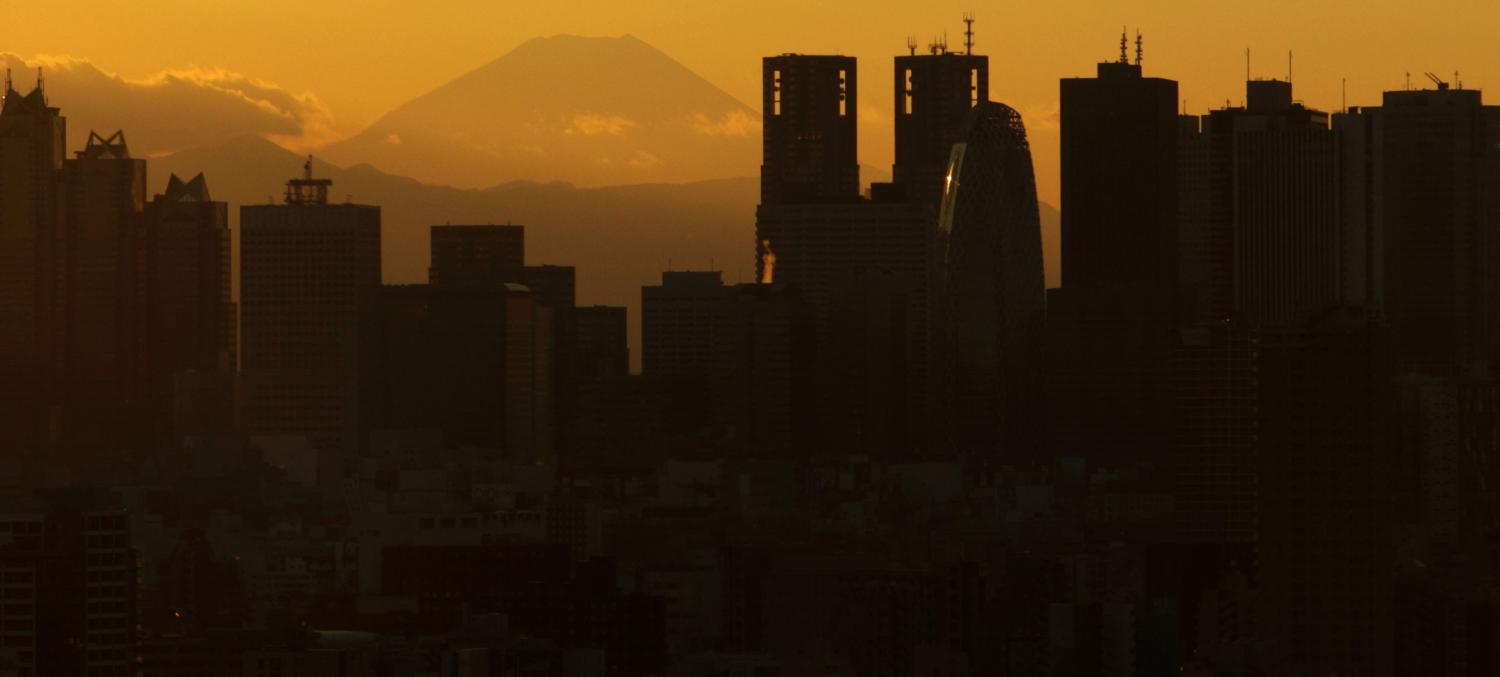No yen for Japan
Australia’s failure to buy Japan’s Soryu submarine will be the real elephant in the room during Prime Minister Shinzo Abe’s visit this weekend. But as Australia’s oldest and deepest economic partner in Asia, there’s a serious commercial basis of trust to allow the two countries to get back to the security cooperation that has been the relationship's striking feature over the past decade.
However, the other elephant in the room will be how the economic relationship has become so unbalanced in recent years on the investment side, after a long complementary trade relationship dating back to the 1950s.
It is little appreciated that in 2015 Japan was Australia’s biggest foreign direct investor (on a net basis) at $14 billion, compared with $9.7 billion from the US. This investment has moved on from mining to sectors such as infrastructure, food processing and insurance. Japan has also overtaken the United Kingdom to be the second biggest cumulative direct foreign investor at $86 billion (compared with the UK's $76 billion). This is great for Australia and should underpin the meetings with Prime Minister Malcolm Turnbull – except that it’s an extremely one-sided story, as Australian net direct investment in Japan was only $14 million. That’s no great vote of support for Abenomics from Australian business, and a subject of much debate in the bilateral business community.
Oily water
Australia’s decision to abandon a decade of diplomatic wicketkeeping over the controversial 2006 maritime boundary treaty with Timor-Leste raises two interesting questions beyond the international legal issues (see Bec Strating’s analysis here).
What was the real strategic rationale for Australia’s tough negotiating approach to a small, poor neighbour in the first place and does it still apply today? And, given the change of tack vindicates the Labor’s shift on the Timor boundary issue a year ago, will this embolden more divergence on areas of foreign policy where bipartisanship has mostly applied?
The former goes to the aims of economic diplomacy, while the latter suggests some interesting domestic politics ahead as Australia digests the impact of the imminent Trump administration in the US.
Rereading the National Interest Analysis and the subsequent Joint Standing Committee on Treaties report on the rather obliquely titled 2006 Certain Maritime Arrangements in the Timor Sea (CMATS) Treaty leaves the distinct sense that Australia thought its involvement would ensure better management of the Greater Sunrise petroleum resource than Timor-Leste would provide alone.
This might be as basic a national interest as just looking after Australian companies. But while no Australian official would ever say this publicly, the underlying subtext in these documents seems to be that Timor-Leste was already a substantial aid responsibility and so Australia wanted to retain some considerable influence over the only clear path out of aid dependence. That path is the prudent management of the development of the non-renewable oil reserves and then the money flowing from them.
Neo-colonialism or strategic economic diplomacy? Whatever the correct characterisation, this issue has gained more attention among government strategic planners in the past couple of years as Timor-Leste has deliberately chosen to run down its sovereign wealth fund (the Petroleum Fund) at an unsustainable rate. Meanwhile, Australia’s aid to Timor-Leste has doubled over the decade the CMATS Treaty has been in place, but no development of the Sunrise field has occurred.
The fall in the gas price and other mega projects are partly to blame for no development but so too is the stand-off over whether the gas would be processed in Australia or in Timor-Leste, where Petroleum Fund money is being used to build gas processing infrastructure which may never be used.
Alternative development strategies in agriculture and tourism seem to have been effectively sidelined while the battle over domestic processing of fully Timor-Leste-owned Sunrise gas is being played out at both the diplomatic and domestic political levels.
So who has the upper hand now new boundary negotiations are about to get under way? Australia can put the squeeze on Timor-Leste because the spreadsheets clearly show how all the dipping into the Petroleum Fund will likely cause a budget crisis within ten years. But after the CMATS saga, Timor-Leste negotiators will know that any budget crisis from a lack of Sunrise gas development will almost certainly wind up back on Australia’s aid account.
Labor can claim a foreign policy win of sorts on this matter now, but if/when it returns to office, it may well have to make the decision on where the tipping point is between applying the old neo-colonial squeeze in negotiations and dealing with the arrival of a failed state.
Outward bound?
There has been a rocky start to the year for companies struggling with the challenge of turning the big picture of long-term growth in Asia into practical dividends for local investors.
The ANZ Banking Group’s sale of its 20% share in China’s Shanghai Rural Commercial Bank continues the banking withdrawal from Asia, but was no surprise given the long established plan to dump the bank’s minority Asian stakes due to the higher capital now required against these investments. This data from the Bank for International Settlements shows banks have pulled back lending to Asia by US$18 billion in two years.
The management shake-up and share price collapse at infant formula producer Bellamy’s seems to have been a case of a small company being sucked into the China market vortex too fast to manage the challenges of supply chains and Chinese regulatory uncertainty. Meanwhile Interflour, the much more mature grain milling business run by farmer cooperative CBH Ltd across Southeast Asia, has suffered a sharp profit slump despite its gradual scale up and having a real insider partner in Indonesia’s Indofood.
When value-added food sales and offshore investment opportunities are meant to be the key strategic gains from all the recent trade deals, the path beyond the resources boom is still not so clear.
Shooting the messenger
Indonesia’s likely brief ban on military cooperation with Australia certainly made a bigger bang, but was arguably less thin-skinned than the simultaneous move to punish investment bank JPMorgan for stating the obvious about the country’s markets.
Both actions, however, underline how if a country is told enough times that it is going to be a top five global economy (despite much work still to be done), some of its officials will start to act like it is one.
The military row seems to have had some slim basis in sloppy training material at the Perth special forces base. But the ban on JPMorgan acting as a primary Indonesian bond dealer is an overreaction to the normal opinionated research investment banks issue to drum up business. Given that market opinion about the impact of the Trump Administration on the world economy is all over the place, Indonesia has only drawn attention to its high dependence on foreign investment in its sovereign debt issues with the attack on JPMorgan.
The public intervention by respected finance minister Sri Mulyani Indrawati, a pro-reform former World Bank executive, against JPMorgan will no doubt make foreign banks take notice.
But as emerging markets become a bigger part of the global economy, they should have an interest in distinguishing themselves from their peers as well-governed markets, rather than joining campaigns against foreign banks. Competition for investors will eventually apply even to top five countries. Finding such a simple principle to govern political relations between Australia and Indonesia will be much harder.

